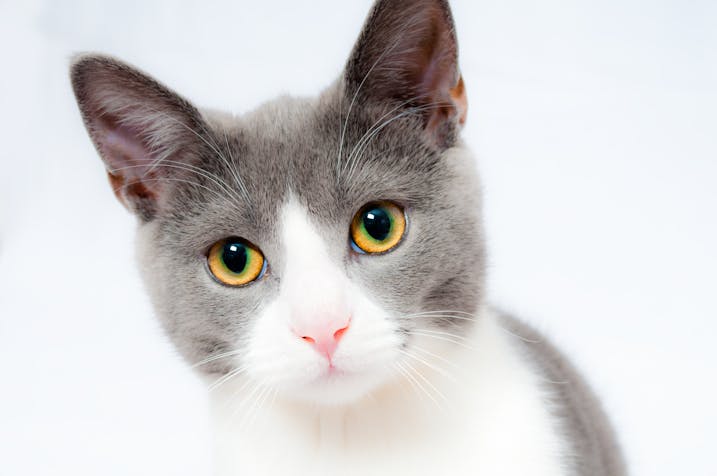Have you ever been cooking up a delicious dinner and wondered if your cat could enjoy a little taste of what you’re making? For many pet owners, this curiosity often leads to questions about human foods, like Knorr Alfredo Sauce. While creamy sauces may seem harmless, it’s important to understand how they can affect your cat’s health before you share a bite.
🍝 What Is Knorr Alfredo Sauce Made Of?
Knorr Alfredo Sauce is a popular packaged product designed to create a rich, creamy pasta sauce. Its ingredients include powdered cheese, milk solids, cream, butter, salt, garlic, and various seasonings. While these ingredients are safe for humans when consumed in moderation, they can pose risks for cats due to their unique dietary needs.
Even though Knorr Alfredo Sauce contains dairy and fats that may seem appealing to your feline, cats are obligate carnivores. This means their digestive systems are designed to process animal proteins rather than dairy or high-fat foods. Some components of Alfredo sauce can be particularly harmful or even toxic to cats.
🚨 Ingredients in Alfredo Sauce That Can Harm Cats
Not all ingredients in Knorr Alfredo Sauce are safe for your cat. Here are a few common components that could cause issues:
- Garlic and onion powder – Both garlic and onion are toxic to cats, even in small amounts. They can damage red blood cells and lead to anemia.
- Excessive salt – High sodium levels in Alfredo sauce can lead to dehydration, high blood pressure, or salt poisoning in cats.
- Dairy products – Many cats are lactose intolerant, and consuming milk, cream, or cheese can result in digestive upset like diarrhea or vomiting.
- High fat content – Alfredo sauce is rich in fats, which can cause pancreatitis, obesity, or other long-term health issues for cats.
- Preservatives and artificial flavors – Processed foods like Knorr Alfredo Sauce often contain additives that may irritate a cat’s stomach or cause allergic reactions.
Because of these ingredients, it’s best to avoid giving Alfredo sauce to your cat altogether.
🩺 Symptoms to Watch for If Your Cat Eats Alfredo Sauce
If your cat manages to sneak a taste of Knorr Alfredo Sauce, you should monitor them closely for signs of distress. Some symptoms to watch for include:
- Vomiting or diarrhea
- Lethargy or lack of energy
- Excessive thirst or urination
- Loss of appetite
- Signs of abdominal pain, such as hunching or reluctance to move
- Pale gums, which may indicate anemia
These symptoms could range from mild to severe depending on how much sauce your cat consumed and their individual sensitivity. If your cat shows any of these signs, it’s important to contact your veterinarian immediately.
🐾 Why Cats Are Better Off Without Alfredo Sauce
Even if your cat seems to enjoy the taste of Alfredo sauce, feeding it to them can have long-term consequences. Cats rely on a balanced diet of high-quality cat food that is specifically formulated to meet their nutritional needs. Human foods like Alfredo sauce lack essential nutrients for cats and may disrupt their digestive systems.
Additionally, regular consumption of high-fat or high-sodium foods can lead to chronic health problems such as obesity, diabetes, and heart disease. By sticking to cat-safe treats and meals, you can ensure your feline friend stays healthy and happy.
🍴 Safe Alternatives for Treating Your Cat
If you want to share a special treat with your cat, consider offering them foods that are safe and nutritious. Here are some feline-friendly options:
- Cooked, unseasoned chicken or turkey
- Small pieces of plain, cooked fish like salmon or tuna
- Cat-specific treats available at pet stores
- A small amount of plain, cooked egg
Always introduce new foods in small quantities to ensure your cat doesn’t have an adverse reaction. And remember, treats should only make up a small portion of your cat’s overall diet.
🐱 What to Do If Your Cat Eats Alfredo Sauce
If your cat eats Alfredo sauce, try not to panic. First, determine how much they consumed and check the ingredient list for potentially toxic items like garlic or onion powder. Then, follow these steps:
- Remove any remaining sauce to prevent further ingestion.
- Provide fresh water to help flush out their system.
- Monitor your cat for symptoms of illness, such as vomiting or lethargy.
- Contact your veterinarian if you’re unsure whether the amount consumed is dangerous.
In some cases, your vet may recommend bringing your cat in for observation or treatment, especially if they show signs of toxicity or digestive upset.
FAQs
Can cats eat any type of pasta sauce?
No, most pasta sauces contain ingredients like garlic, onion, and salt, which are harmful to cats. It’s best to avoid giving your cat any type of pasta sauce.
What happens if my cat eats a small amount of Alfredo sauce?
A small amount may not cause serious harm, but you should still monitor your cat for symptoms like vomiting, diarrhea, or lethargy. If these occur, contact your veterinarian.
Are there any dairy products that are safe for cats?
Some cats can tolerate small amounts of plain yogurt or lactose-free milk, but many are lactose intolerant and may experience digestive upset from dairy. Always consult your vet before introducing new foods.
What should I do if my cat has a severe reaction to Alfredo sauce?
If your cat exhibits severe symptoms such as difficulty breathing, extreme lethargy, or pale gums, seek emergency veterinary care immediately.
References
Book a $49 online vet consultation at https://www.dialavet.com for fast, expert advice.






















